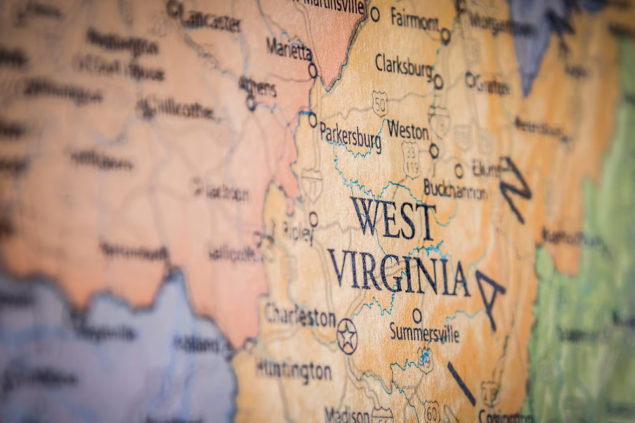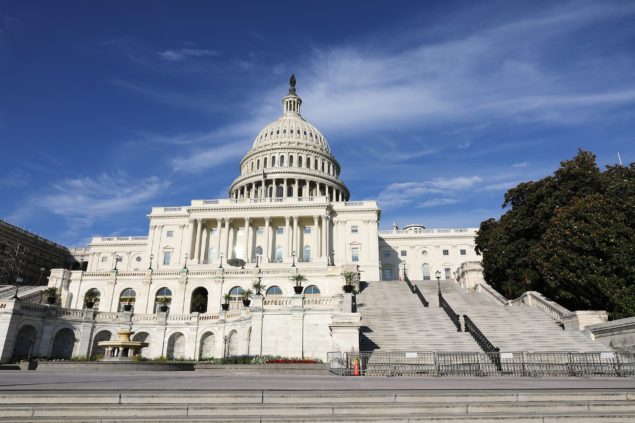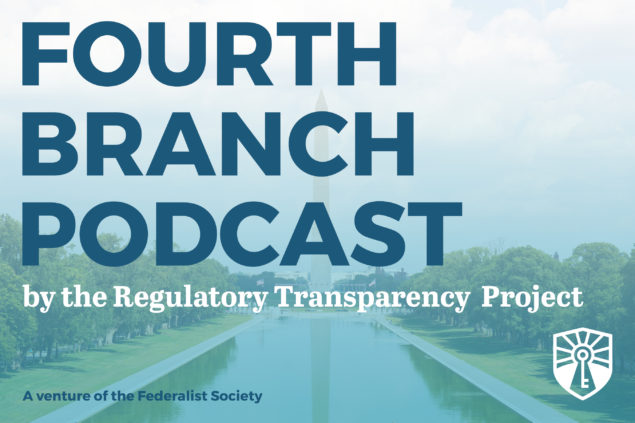Jonathan Adler
Johan Verheij Memorial Professor of Law and Director, Coleman P. Burke Center for Environmental Law
Case Western Reserve University School of Law

Jonathan Adler
Johan Verheij Memorial Professor of Law and Director, Coleman P. Burke Center for Environmental Law
Case Western Reserve University School of Law
Jonathan Adler is the inaugural Johan Verheij Memorial Professor of Law and Director of the Coleman P. Burke Center for Environmental Law at the Case Western Reserve University School of Law, where he teaches courses in environmental, administrative and constitutional law.
Professor Adler is the author or editor of seven books, including Business and the Roberts Court (Oxford University Press, 2016) and Rebuilding the Ark: New Perspectives on Endangered Species Act Reform (AEI Press, 2011), and over a dozen book chapters. His articles have appeared in publications ranging from the Harvard Environmental Law Review and Supreme Court Economic Review to The Wall Street Journal and USA Today. He has testified before Congress a dozen times, and his work has been cited in the U.S. Supreme Court. A 2016 study identified Professor Adler as the most-cited legal academic in administrative and environmental law under age 50.
Professor Adler is a contributing editor to National Review Online and a regular contributor to the popular legal blog, “The Volokh Conspiracy,” hosted by washingtonpost.com. A regular commentator on constitutional and regulatory issues, he has appeared on numerous radio and television programs, ranging from the PBS “Newshour with Jim Lehrer” and NPR’s “Talk of the Nation” to the Fox News Channel’s “O’Reilly Factor” and “Entertainment Tonight.”
Professor Adler is a senior fellow at the Property & Environment Research Center in Bozeman, Montana and at the Center for the Study of the Administrative State at the George Mason University School of Law. He also serves on the academic advisory board of the Cato Supreme Court Review, the NFIB Small Business Legal Center Advisory Board, the Board of Directors of the Foundation for Research on Economics and the Environment, and the Environmental Law Institute’s Environmental Law Reporter and ELI Press Advisory Board.
In 2004, Adler received the Paul M. Bator Award, given annually by the Federalist Society for Law and Policy Studies to an academic under 40 for excellence in teaching, scholarship, and commitment to students. In 2007, the Case Western Reserve University Law Alumni Association awarded Adler their annual “Distinguished Teacher Award.”
Prior to joining the faculty at Case Western Reserve, Adler clerked for the Honorable David B. Sentelle on the U.S. Court of Appeals for the District of Columbia Circuit. From 1991 to 2000, Adler worked at the Competitive Enterprise Institute, a free market research and advocacy group in Washington, D.C., where he directed CEI’s environmental studies program. He holds a BA magna cum laude from Yale University and a JD summa cum laude from the George Mason University School of Law.

A person listed as a contributor has spoken or otherwise participated in Regulatory Transparency Project events, publications, or multimedia presentations. A person's appearance on the website does not imply an endorsement or relationship between the person and the Regulatory Transparency Project. The Regulatory Transparency Project takes no position on particular legal or public policy issues. All expressions of opinion by a contributor are those of the contributor.
Contributions
The Implications of Jarkesy v. SEC for Administrative Tribunals
In this program, experts discuss the Jarkesy v. SEC case, implications of the case on the future of administrative tribunals, and continuing litigation on the issue.
Watch this videoDeep Dive Episode 232 – The Implications of Jarkesy v. SEC for Administrative Tribunals
In this episode, experts discuss the Jarkesy v. SEC case, implications of the case on the future of administrative tribunals, and continuing litigation on the issue.
Listen to this podcastWV v. EPA: Some Answers about Major Questions (But Not All the Answers We Need)
Jonathan Adler
In West Virginia v. Environmental Protection Agency, the Supreme Court correctly concluded that the Obama Administration and U.S. Court of Appeals for the D.C. Circuit embraced an overbroad understanding of the EPA’s authority under Section 7411 of the Clean Air Act. The way the Court reached that conclusion left something to be desired, however. As I discuss in my forthcoming analysis of the case for the Cato Supreme Court Review, the Court front-loaded its consideration of the major questions doctrine and failed to fully engage with the relevant statutory provisions. It also missed an opportunity to refocus the major questions doctrine on what really matters in cases like this: What power did Congress delegate to the agency.
Read this articleExplainer Episode 29 – The EPA’s Methane Emissions Rule
Professor Jonathan Adler discusses a recently-enacted law that repealed changes to EPA methane emissions regulations made by the Trump administration.
Listen to this podcastThe Implications of the Latest Congressional Review Act Disapprovals
Professors Jonathan Adler and Todd Gaziano discuss the CRA and its use on 3 rules earlier this year.
Watch this videoDeep Dive Episode 190 – The Implications of the Latest Congressional Review Act Disapprovals
Todd Gaziano and Professor Jonathan Adler discuss the CRA and the ramifications of its use on the three rules this year.
Listen to this podcastDeep Dive Episode 128 – Can States Trump Interstate Commerce?
Experts explore state laws and regulations that expand states’ reach into national and international affairs, and go on to discuss different interpretations of the Constitution regarding the role of the judiciary in evaluating such laws.
Listen to this podcastDeep Dive Episode 60 – Juliana v. United States
Juliana v. United States is a pending lawsuit in which a group of minors alleges that the government has violated their right to a stable climate under the 5th Amendment. In this episode, experts discuss the recent oral arguments in the case, the potential outcome, and the constitutional implications of the case.
Listen to this podcast






